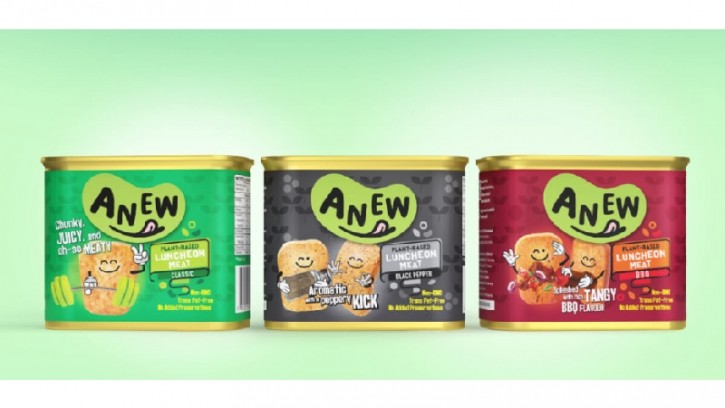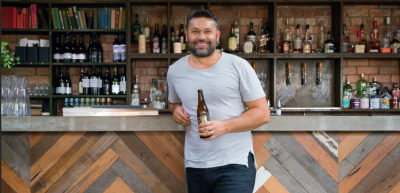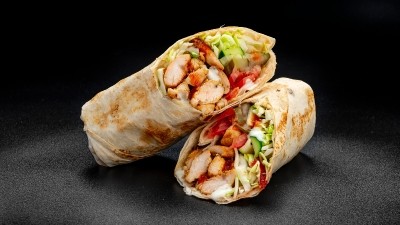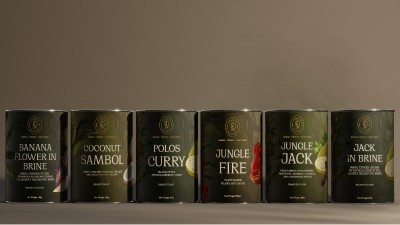Changing perceptions: Singapore’s ANEW woos health-conscious consumers with ‘nutritious’ plant-based luncheon meat

Launched by Singapore food manufacturing group OTS Holdings Limited, ANEW is part of the company’s efforts to stay on top of global market trends.
“For the past 25 years, OTS has been using animal protein. We noticed an increasing focus on wellness and sustainability topics worldwide, and in 2019, we decided to diversify our products with plant protein. Apart from reducing reliance on animal sources, we also wanted to stretch our innovation limits to create shelf-stable plant-based products,” Ong Shiya, manager of brand and corporate marketing at OTS, told FoodNavigator-Asia.
One of ANEW’s biggest goals is to introduce innovative and tasty products that will ease consumers’ transition from an animal-based to a plant-based diet.
Luncheon meat, often considered to be lacking in nutrients or even unhealthy, was chosen as the brand’s flagship product to offer health-conscious consumers an alternative.
“ANEW’s plant-based, non-GMO substitute is made with wheat, soy protein, vegetable juice and Eucheuma seaweed. It is high in protein, free of trans fat, and has no added preservatives.
“Every 100g serving of the Classic flavour contains 16.8g of protein, 4.9g of dietary fibre, 9.8g of fat, and 176kcal. Among counterparts in the market, it has the lowest calorie and fat contents, and the highest protein and fibre levels — a boon for consumers who love luncheon meat but are concerned about its nutritional values,” said Ong.
The products were brought to market in June 2022, with the line-up consisting of three flavours, namely Classic, Black Pepper and BBQ.
Three types of ready-to-eat (RTE) plant-based sauces, Rendang Meat, Butter Chicken and Bolognese Minced Meat, were added to the portfolio in November.
Currently, the luncheon meat series are sold on ANEW’s website and selected FairPrice supermarkets in Singapore, as well as e-commerce platforms like Shopee, Qoo10, LazMall, RedMart and FairPrice Online.
Although the RTE sauces are only available online at the moment, plans to stock them at FairPrice stores are under way.
Differentiation and localisation
In an increasingly saturated space, ANEW has taken various approaches to stand out from the competition, including leveraging the company’s experience in this field.
“OTS has been producing regular luncheon meat [under the Golden Bridge and Kelly’s brands] for about 12 years. We dug into our existing capabilities, adapted the technology and processes, and switched from an animal-based protein to a plant-based one.
“We have an in-house R&D team that does all the formulation adjustments. In addition, we held numerous internal taste tests by comparing against animal-based luncheon meat and the vegetarian mock-meat version. We also sent prototypes to consumers for review before proceeding to mass production, so as to ensure that the taste is convincing enough to convert regular luncheon meat-eaters,” Ong explained.
Furthermore, the firm focused on developing products with a longer shelf life, and that require less resources for storage, shipping and export.
“The place where our luncheon meats sit in the supermarket is already differentiated — most plant-based products, such as nuggets and beef patties, are located in the frozen foods section, but we are easily found on the shelves.
“We studied the market and realised that the big brands tended to lean towards Western flavours, so we wanted to come up with localised flavours that resonate better with Singapore consumers. For instance, the Rendang sauce has a familiar spicy kick, the Butter Chicken is inspired by Indian cuisine, and the Bolognese is a family-friendly classic,” she added.
What’s cooking?
Last month, ANEW obtained vegan certification from The Vegan Society in the UK for its luncheon meat range.
“We are working to get the RTE sauces vegan-approved too. On the other hand, we find that the demand for halal plant-based products in Singapore is not as significant yet, so there are no concrete plans for halal certification for now.
“There are still a lot of conversations happening globally around food security and unstable animal supply sources. Therefore, we remain invested in continuously expanding our plant-based line. We will focus on developing more localised flavours and enhancing our existing products to stay relevant, and fit into consumers’ evolving diets and lifestyles,” Ong shared.
Beyond Singapore, ANEW hopes to enter the Indonesia and Australia markets within this year, although actual launch plans are dependent on approval from the respective regulatory bodies.
“We are also looking at Malaysia and the Philippines because we already have trade offices and distribution networks there for our other brands. However, this will be at a later stage as we are still studying these two markets to see how we can best roll out the products to suit the local consumers. We will not rule out localising flavours for specific markets, should there be sufficient demand for it,” said Ong.















